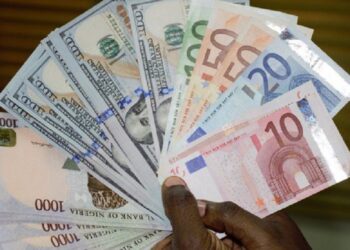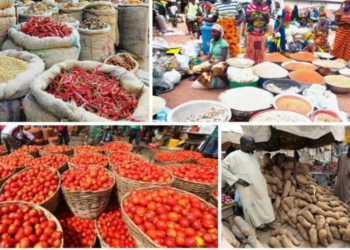Article Summary
- Dr Yemi Kale said new PMS price could contribute 6% to CPI.
- According to him, CPI for June could rise to 30%.
- NBS recorded 22.22% in CPI for April 2023.
KPMG Nigeria’s Chief Economist and former CEO of Nigeria Bureau of Statistics, Dr Yemi Kale, has projected that Nigeria’s inflation could rise to 30% in June 2023.
In a tweet sent out on Friday night (June 2nd 2023), he explained that the new PMS price could add about 6% to the CPI for June over the expected May CPI.
- “Using the NBS CPI model+my macro model, the new PMS prices may add about 6% to CPI in June over whatever is reported in May, holding other things constant. April was 22.22% & May is unknown & won’t be affected. So June will be somewhere about 30%. Not as bad as I expected,” he said.
Using the NBS CPI model+my macro model, the new PMS prices may add about 6% to CPI in June over whatever is reported in May, holding other things constant. April was 22.22% & May is unknown & won’t be affected. So June will be somewhere about 30%. Not as bad as I expected.
— Dr Yemi Kale (@sgyemikale) June 2, 2023
What you should know
Energy costs have long been a major driver of inflation in Nigeria. Available records show that high fuel costs contributed significantly to April’s inflation, according to the latest CPI report.
Consequently, the recent spike in PMS will most likely cause an increase in the Consumer Price Index (CPI) just as Dr Kale has projected.
More on the June CPI Projection
- Energy costs directly impact various sectors of the economy and are a contributing factor to inflation.
- Gas and other fuel contributed 3.72% to the headline inflation index for April 2023.
- With the new PMS price now up, the projection, according to Dr Kale, is that the new price would add about 6% to the CPI for June 2023 bringing inflation to about 30%.
Implications for consumers
A higher CPI means that there would be more decrease in purchasing power for consumers as prices of goods and services would continue to rise.
The impact would be particularly felt by low and middle-income earners who spend a significant portion of their income on essential items like food and transportation which would be affected by energy costs caused by the rise in PMS price.
In case you missed it
In his inauguration speech last month, President Tinubu announced the removal of fuel subsidies which elicited widespread reaction across the nation.
The President’s remark caused the price of the commodity to skyrocket almost automatically across the country. It also led to fuel scarcity in different parts of Nigeria.























